Hannah R. Boyajieff
2020 U.S. Presidential Election: Analysis of Female and Male Users on Twitter
Aug 21, 2021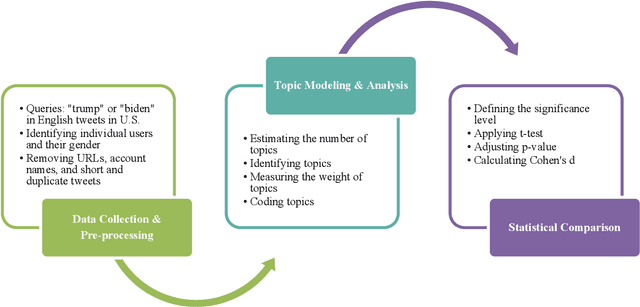
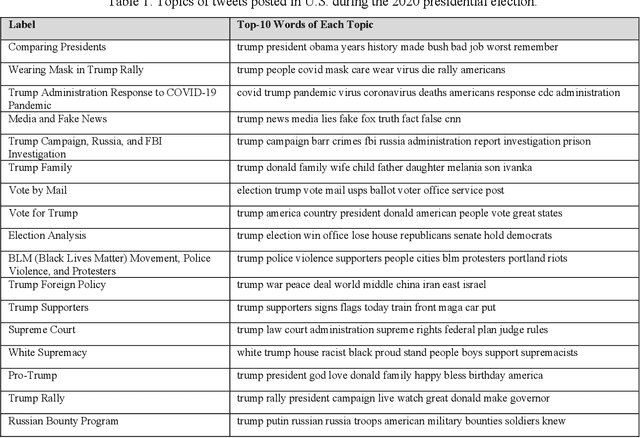
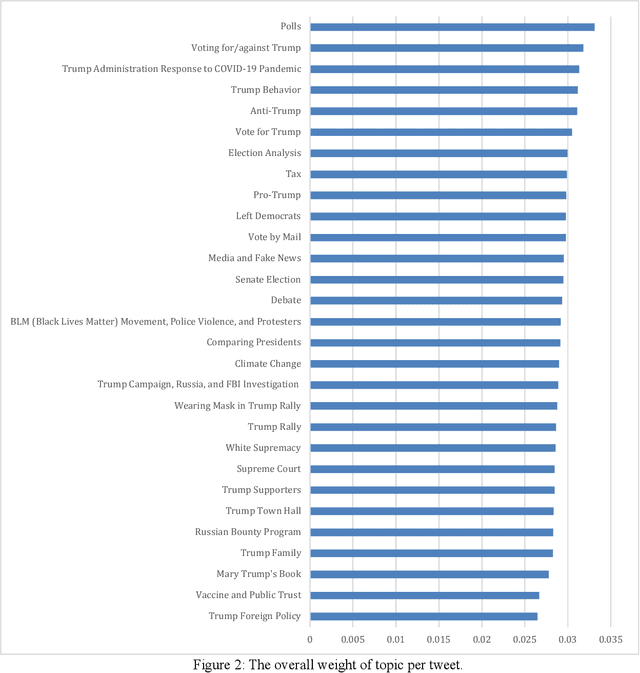
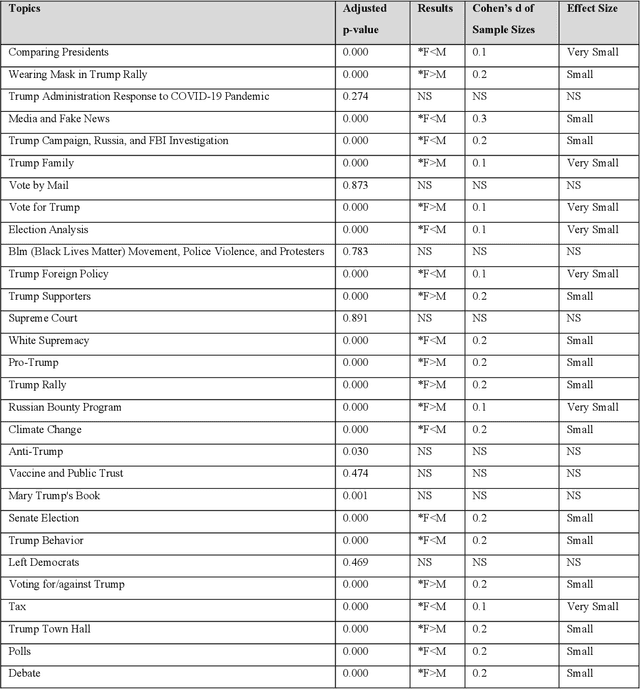
Abstract:Social media is commonly used by the public during election campaigns to express their opinions regarding different issues. Among various social media channels, Twitter provides an efficient platform for researchers and politicians to explore public opinion regarding a wide range of topics such as economy and foreign policy. Current literature mainly focuses on analyzing the content of tweets without considering the gender of users. This research collects and analyzes a large number of tweets and uses computational, human coding, and statistical analyses to identify topics in more than 300,000 tweets posted during the 2020 U.S. presidential election and to compare female and male users regarding the average weight of the topics. Our findings are based upon a wide range of topics, such as tax, climate change, and the COVID-19 pandemic. Out of the topics, there exists a significant difference between female and male users for more than 70% of topics. Our research approach can inform studies in the areas of informatics, politics, and communication, and it can be used by political campaigns to obtain a gender-based understanding of public opinion.
COVID-19 Vaccine and Social Media: Exploring Emotions and Discussions on Twitter
Jul 29, 2021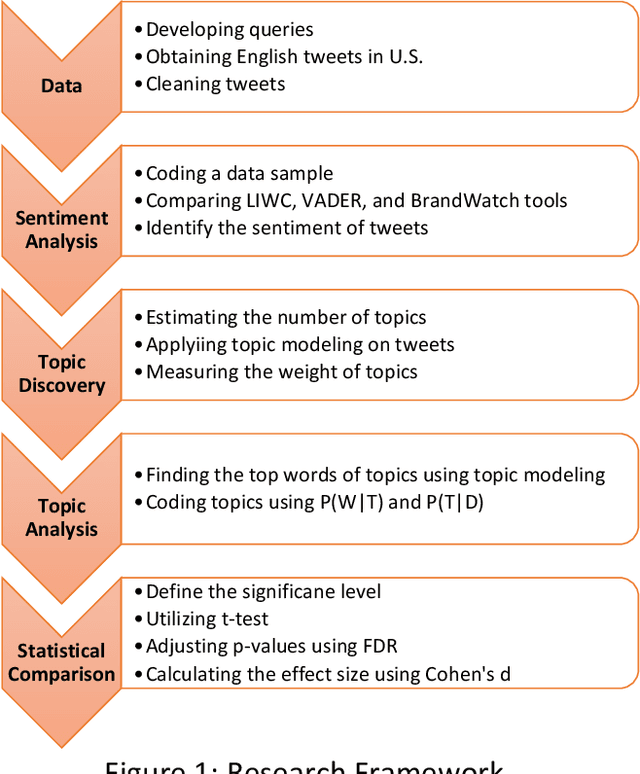
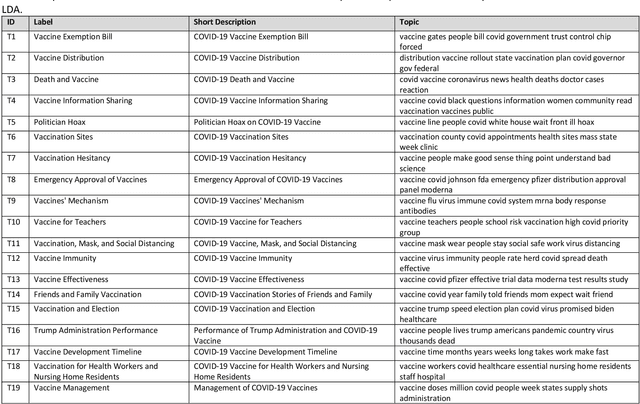
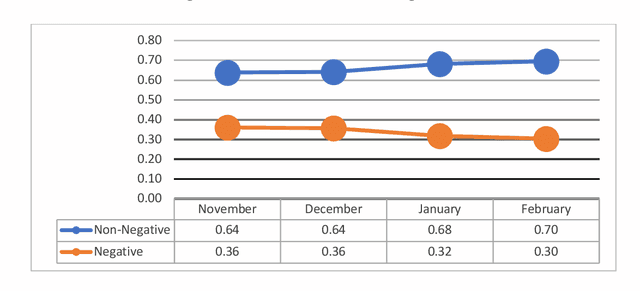
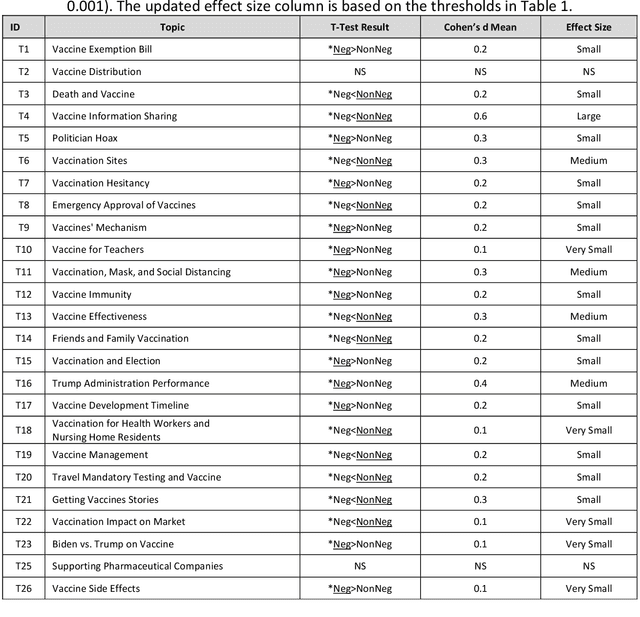
Abstract:Public response to COVID-19 vaccines is the key success factor to control the COVID-19 pandemic. To understand the public response, there is a need to explore public opinion. Traditional surveys are expensive and time-consuming, address limited health topics, and obtain small-scale data. Twitter can provide a great opportunity to understand public opinion regarding COVID-19 vaccines. The current study proposes an approach using computational and human coding methods to collect and analyze a large number of tweets to provide a wider perspective on the COVID-19 vaccine. This study identifies the sentiment of tweets and their temporal trend, discovers major topics, compares topics of negative and non-negative tweets, and discloses top topics of negative and non-negative tweets. Our findings show that the negative sentiment regarding the COVID-19 vaccine had a decreasing trend between November 2020 and February 2021. We found Twitter users have discussed a wide range of topics from vaccination sites to the 2020 U.S. election between November 2020 and February 2021. The findings show that there was a significant difference between negative and non-negative tweets regarding the weight of most topics. Our results also indicate that the negative and non-negative tweets had different topic priorities and focuses.
 Add to Chrome
Add to Chrome Add to Firefox
Add to Firefox Add to Edge
Add to Edge